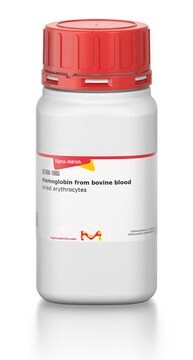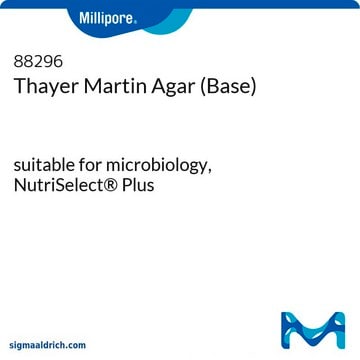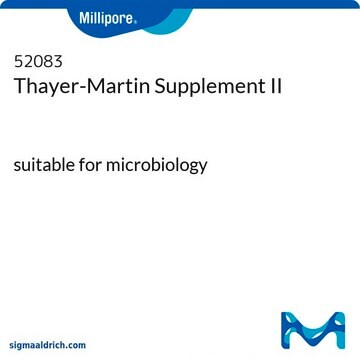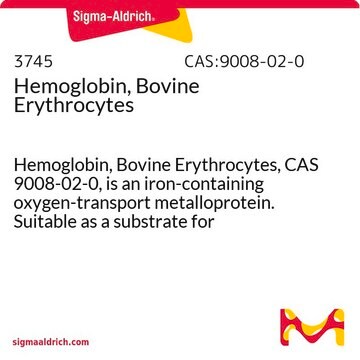08449
Hemoglobin from bovine blood
suitable for microbiology
Synonym(s):
FO Growth Supplement, Bovine hemoglobin, Hb, Methemoglobin
About This Item
Recommended Products
sterility
sterile
Quality Level
form
powder
shelf life
limited shelf life, expiry date on the label
mol wt
Mr ~64500
loss
<10% loss on drying
application(s)
environmental
food and beverages
microbiology
storage temp.
2-8°C
suitability
Neisseria spp.
Gene Information
cow ... HBA1(281221) , HBB(280813) , HBE2(513240) , HBE4(513108) , HBG(511735) , alpha globin(512439)
Looking for similar products? Visit Product Comparison Guide
General description
Application
Biochem/physiol Actions
Packaging
Caution
Storage Class Code
11 - Combustible Solids
WGK
WGK 3
Flash Point(F)
Not applicable
Flash Point(C)
Not applicable
Personal Protective Equipment
Regulatory Listings
Regulatory Listings are mainly provided for chemical products. Only limited information can be provided here for non-chemical products. No entry means none of the components are listed. It is the user’s obligation to ensure the safe and legal use of the product.
JAN Code
08449-BULK-F:
08449-500G-F:
08449-100G-F:
08449-VAR-F:
Choose from one of the most recent versions:
Already Own This Product?
Find documentation for the products that you have recently purchased in the Document Library.
Customers Also Viewed
Our team of scientists has experience in all areas of research including Life Science, Material Science, Chemical Synthesis, Chromatography, Analytical and many others.
Contact Technical Service










